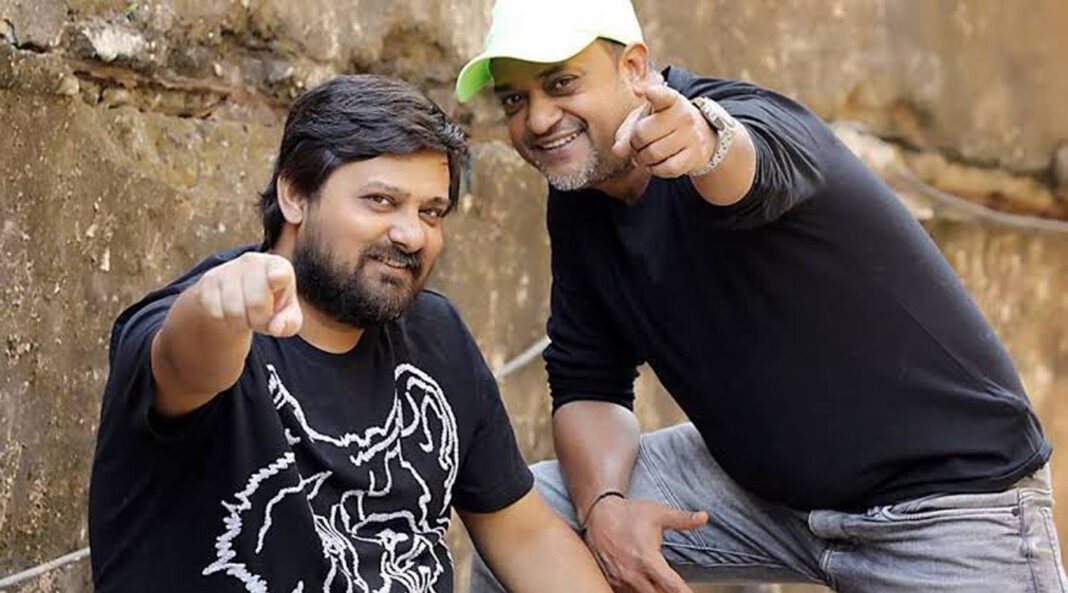In a career spanning decades, Sajid Khan has been the melodic heartbeat of Bollywood, crafting iconic tunes with his late brother Wajid Khan. Now as he embarks on a solo journey, Sajid opens up to The Pioneer about his latest ‘Jashn-E-Ghazal’, giving a poignant tribute to his brother and more
PNS|HYDERABAD
With Jashn-E-Ghazal, Sajid Khan rekindles the soul of ghazals, weaving a poignant tribute to his brother Wajid while bridging the echoes of tradition with the rhythms of modernity. In the vibrant corridors of Bollywood, the music of Sajid-Wajid has resonated as more than mere melody; it has been a heartbeat. But when Wajid Khan, one half of the legendary duo, passed away in 2020, the rhythm faltered. Left to navigate the music world without his partner, brother and anchor, Sajid Khan crafted Jashn-E-Ghazal—a tribute to their shared legacy and the timeless music they created together.
In this exclusive interview with The Pioneer, Sajid reflects on his journey of transformation, the making of Jashn-E-Ghazal and the evolving landscape of the music industry.
“It’s a mix of emotions—unexpected and bittersweet,” Sajid begins, reflecting on stepping into a solo career after Wajid’s passing. “I never imagined working without him, let alone not seeing him by my side. But I feel his presence in everything I do. Life is unpredictable and while I miss him deeply, I’m embracing this new journey. Wajid would have wanted that.”
For Sajid, the void left by Wajid was both personal and professional and it extended beyond their family to the industry and fans who cherished their collaboration. “It’s natural for people to wonder how one half of a duo will move forward. But I’ve realised my strength lies within me—music has always been my power. I’m collaborating with new artists, programmers and technicians. Even my daughter, Muskaan, has become a guiding force, suggesting collaborations and offering fresh perspectives.”
Reflecting on his creative process, the Surili Akhiyon Wale composer emphasises his commitment to preserving the essence of Indian musical traditions. “Melody is the soul of our music and I am determined not to let it fade,” he says. His passion for ghazals, a genre he believes has lost some of its allure in pursuit of profit over artistry, drives his latest project.
Khan’s connection to ghazals is deeply personal. “Our first earnings came from performing at ghazal events,” he recalls. As children, Wajid played the guitar, meanwhile, Sajid accompanied him on the tabla. “Our father would give us twenty rupees as pocket money. Later, we began earning more by playing at qawwali and ghazal sessions.” Now, collaborating with the very maestros he once admired feels, as he puts it, “like life has come full circle.”
With Jashn-E-Ghazal, Sajid seeks to honour both his brother’s memory and the music they loved. The album’s first ghazal, Jab Bhi Kisi Nigah Se, performed by Padma Shri Ustad Ahmed Hussain and Padma Shri Ustad Mohammed Hussain, is a soulful reminder of the genre’s enduring beauty. Featuring ten ghazals sung by a stellar lineup, including Padma Shri Kavita Krishnamurthy, Hariharan, Anup Jalota and younger voices like Sayli Kamble and Muskan, the album bridges generations with its blend of classical richness and contemporary appeal.
The Tenu Leke composer also reflects on the importance of appreciating legends during their lifetimes. “It’s heartbreaking how we remember icons like R.D. Burman only after they’re gone. I feel blessed to collaborate with maestros like Shivamani, whom I still call my boss. These partnerships remind me of the cyclical nature of life and music.”
While Bollywood has defined much of his career, he is now eager to explore global music markets. “Wajid and I always believed we could make an impact internationally. We even worked on projects with global artists, though they remain unreleased. For now, my focus is on creating a catalog rooted in Sufism and collaborating with incredible voices.”
Known for always staying ahead of his time, he attributes this instinct to his father’s teachings. “The songs we recorded often released two years later, so planning ahead became second nature. As a solo artist, I’m embracing the freedom to multitask and experiment with genres. Bollywood has taken a backseat for now, but I’m excited to explore Chinese or Arabic music and surprise my fans.”
The Jalwa composer also hints at a wealth of unreleased work. “I’ve composed songs for major films, but if they don’t make it to the screen, I’ll release them on my channel. For me, it’s about reaching a genuine audience, not chasing numbers.”
The transition to a solo career has allowed Sajid to reconnect with his family in meaningful ways. “Our careers often take precedence and before you know it, your kids are grown and your parents are aging. Spending quality time with my wife has been especially fulfilling—I’m falling in love with her all over again.”
Despite his decades-long career, he approaches his solo journey with the enthusiasm of a newcomer. “I feel like a fresh struggler, discovering new paths and possibilities. Music has always been my sanctuary and I’m excited to see where this journey takes me.”




